Five things Dortmund must do (or not) in the winter break
Jurgen Klopp's men implausibly plunged into the Bundesliga's relegation play-off spot before the winter pause. Alima Hotakie suggests what needs putting right...
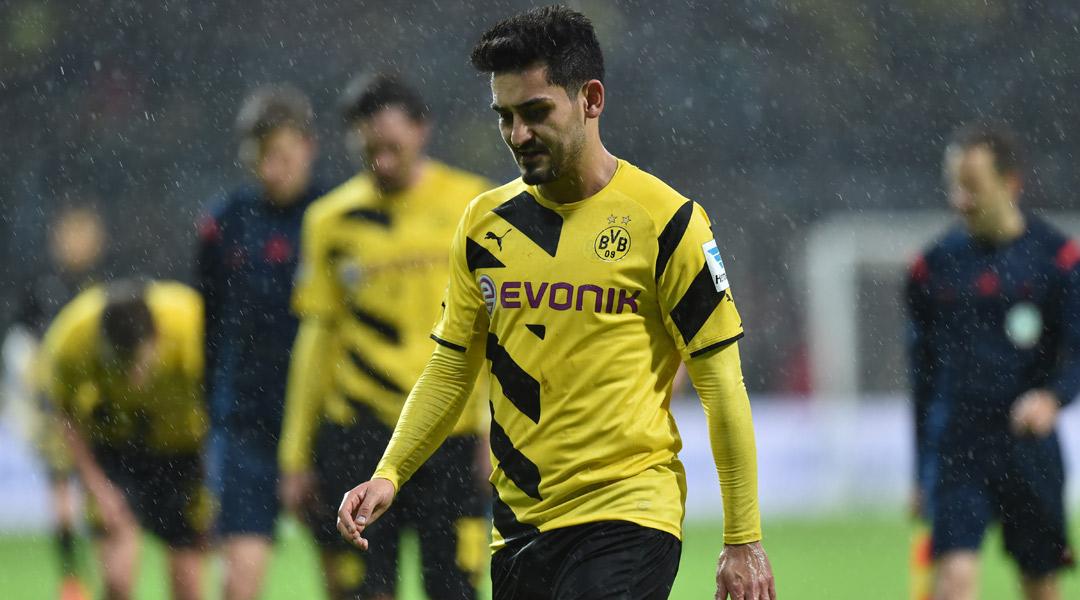
Figuring out what's at the root of Borussia Dortmund's deplorable first half of the season is like trying to diagnose a mystery illness. Die Schwarzgelben have lost 10 of their 17 games so far, more than any other team in the league and already more than all of last season. Now they risk losing out on more than just Champions League football. The repercussions are high, and could mean the exit of Marco Reus and others.
But Jurgen Klopp still has the support of his club, and top management have decided to continue with the 47-year-old in the Ruckrunde (second half). While 12 points separate BVB from a Champions League spot, in previous years the teams that landed those positions hadn’t lost more than 11 games.
This means there’s little room for error in 2015. “We have 17 games in the second half of the season to fight our way out of this, and each one that we don’t use will only make life even harder for us,” declared defender Mats Hummels. Klopp must use the winter break to turn his team’s fortunes around. It’s Dortmund's last shot at putting their house in order...
1) Don't bother signing anyone
Looking back at previous years, Dortmund aren't a club to bring in new signings during the winter, with Nuri Sahin and Milos Jojic the exceptions. They've just offloaded Dong-Won Ji, who returned to his former club Augsburg after a forgettable spell at the Westfalenstadion. Inspecting Dortmund’s current situation, it’s easy to see that the team has existing quality and depth. New faces, therefore, aren’t the antidote at this point.
Klopp recently hinted that the club won’t splash in January, stressing that quantity doesn't always mean more quality. Perhaps he’s onto something. The team does have all the puzzle pieces, after all – it just needs to find a way of piecing them together. Klopp needs his squad to punch their weight and start playing to their potential.
The only worry that could snowball into a larger problem is their goalkeeping situation; either Roman Weidenfeller or Mitchell Langerak has to solidify their starting position. It also wouldn’t hurt to bring in more width, though with Jakub Błaszczykowski and Marco Reus returning that’s less of a worry.
The best features, fun and footballing quizzes, straight to your inbox every week.
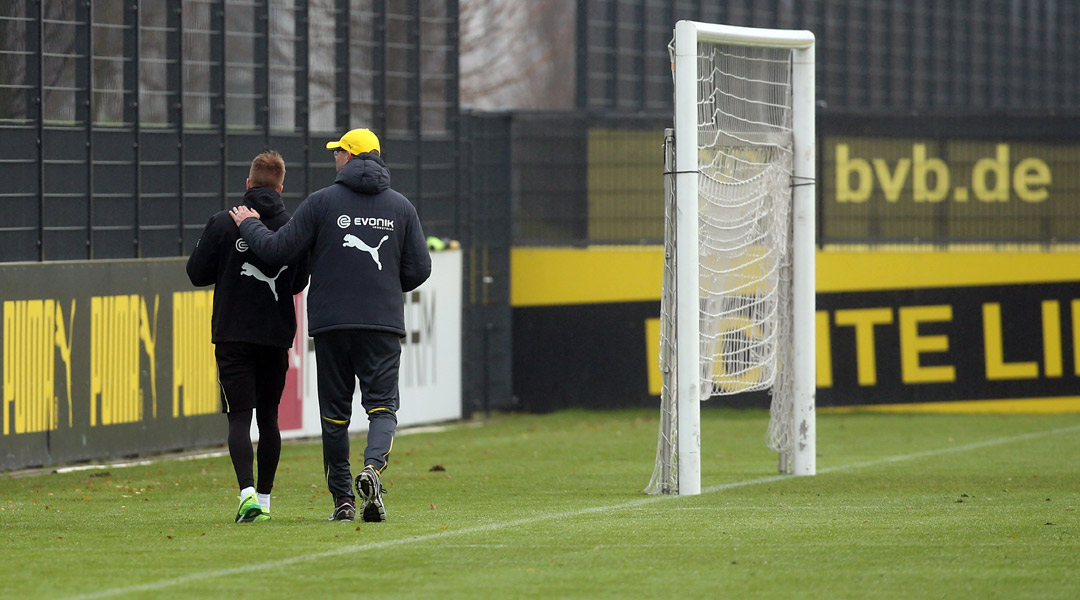
2) "Hello players, this is what a goal looks like"
Sitting 17th in the Bundesliga, it's no surprise that Dortmund have one of the poorest conversion rates this season. BVB struggled mightily against Werder Bremen, a team one goal shy of letting in 40 in the Hinrunde (first half of the season). Even worse was that Dortmund didn't even manage a shot on target in the first 30 minutes. Gone are the days when scoring seemed to come so easily to this team. Halfway into the season, Klopp's men have netted a miserable 18 goals in 17 games, far from the 80+ totals of previous years.
It’s not that Dortmund can’t create chances. They’ve lost several games when they’ve outshot the opponents, but finishing has proved their Achilles heel despite the summer arrivals of Ciro Immobile and Adrian Ramos. Henrik Mkhitaryan has blown chances regularly, for example.
Their passing and midfield presence also needs improvement. The team needs to create better quality chances instead of mindlessly aiming at the net from distance. Without Mkhitaryan, Reus and Ilkay Gundogan, creativity also dips. Klopp must get his attacking players to gel no matter who is playing, but for that chemistry there must be improvements in the final third. Giving the ball away cheaply has become all too common.
As for defensive midfield, Klopp needs to pair players who complement each other. Sven Bender, Gundogan, Sahin and Oliver Kirch are his best choices. Serbian Jojic has disappointed this season, but that’s no reason to rely on an ageing and oft-injured Sebastian Kehl. It’s fair to say the long-serving 34-year-old has hit his expiry date.
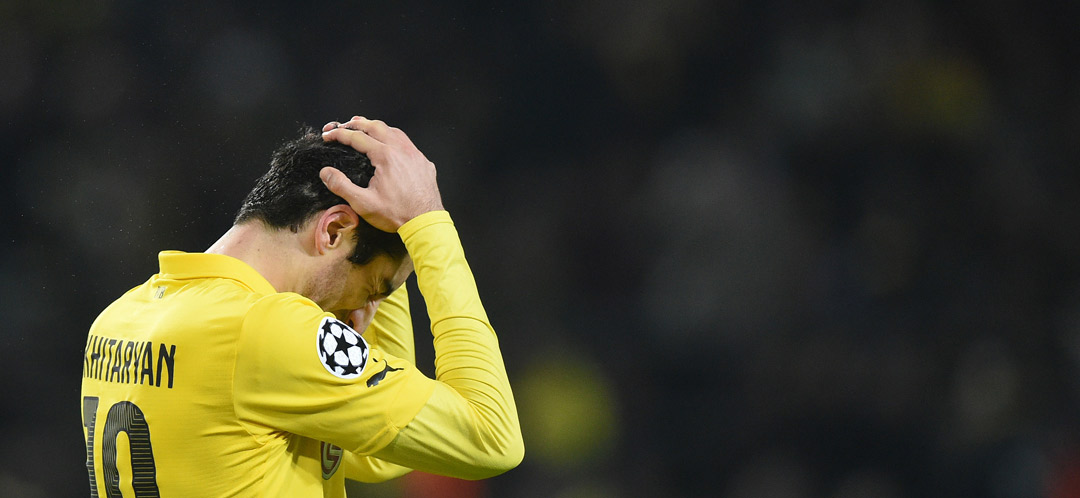
3) Settle on an approach up front
Furthermore, Klopp has to figure out how best to use Immobile and Ramos. Both need more games to make the transition – it’s important to remember that even Robert Lewandowski struggled in his first year. Klopp has tried playing both up front or with Pierre-Emerick Aubameyang, but any combination been ineffective. Dortmund's boss must make up his mind and commit to a system up top. Either way, regular games are vital for these players to break into their roles.
Immobile has flittingly proved his worth against the likes of Arsenal and Wolfsburg. His heart and mind are in the right place, at least. "It made me very happy to finally give something back to the fans," he said after scoring against the latter. The Italian needs to perform as he did that night, varying his game. He showed he’s capable of playing more than just a classic striker's role, also providing an assist. But this goes for both Immobile and Ramos. Their success depends on finding ways to involve both and improve their link-up play. Klopp's famed motivational skills will be tested once more.
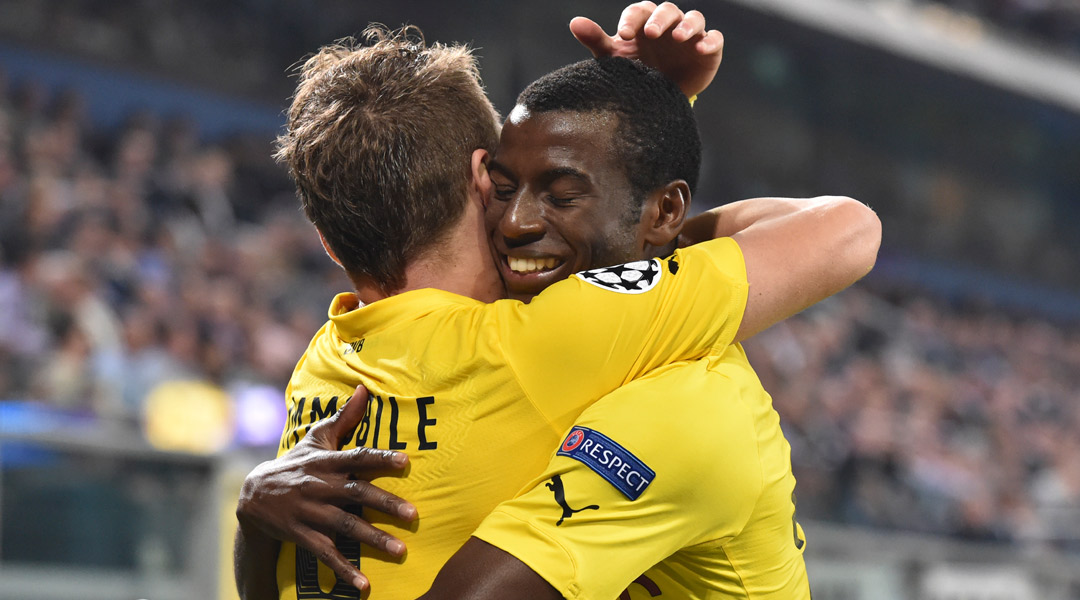
4) Get that rear end back in shape
This is the sore sport for Dortmund this season, after conceding 26 goals in 17 games. Compare that to all of last season when they shipped only 38. Injuries have hindered stability in defence: the Wembley four who featured in the 2013 Champions League Final only played together for the first time last month.
A recurring problem is the large number of individual errors, and not just from Matthias Ginter: World Cup-winner Mats Hummels and the experienced Neven Subotic are to blame too. In fact, the team’s collective defensive duties have been substandard.
Dortmund need to regain confidence playing a high line again, which means tracking back as a unit to minimalise the risk of getting caught on the counter. Although Ginter hasn't performed as anticipated, it's hard to blame the 20-year-old when the rest of his colleagues haven't fared any better, with the exception of Sokratis.
The winter break gives Dortmund the opportunity to work on their positional problems to not allow opponents so much room. Their shape has lost the compactness of previous years, so re-organisation is crucial to success. But the goalkeeping dilemma needs a resolution – both Weidenfeller and Langerak have let in soft goals.
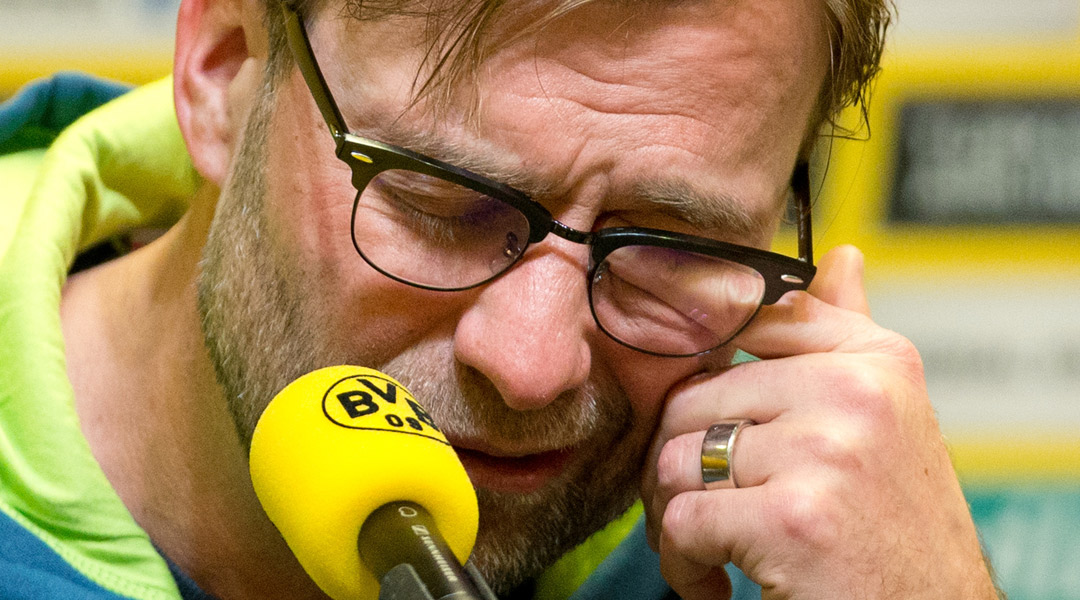
5) Make sure everyone's on board with the plan
Without a doubt, Dortmund are void of their pressing game and intensity that so often defined their old style. Klopp has altered his game, but unsuccessfully. It's hard to bring in changes when the team can't even master the gegenpressing which is so fundamental to Klopp's style.
It's understandable given all the interruptions, injuries and new additions. But what’s missing is the urgency; this team needs to find its rhythm again. While Klopp continues to prefer 4-2-3-1, he's tweaked his game and placed two strikers up front. He’s also used 4-1-4-1 and even brought in a diamond during games.
So what's the problem? With so many line-up changes and injuries, it's been hard for the team to gel. These variations probably didn’t change much because Dortmund's overall execution has been abysmal regardless of system. In other words, it’s the performances and not the tactics. Fundamentally, there’s no control. That said, Klopp does need to figure out an alternative when his pressing game isn’t working; something less intense that can still fetch victories.
Lastly, the club's affable boss must do everything to prevent a drop in morale or the development of chronic low confidence. It’ll be hard for a man who appears broken on the sidelines, but Klopp’s faith and optimism remains surprisingly high.
He’s admitted that this has been the most difficult first half-season of his team’s lives, but there’s still time. “I’m confident that it’ll be much harder to beat us next year,” declared the bearded boss.
Let’s not dismiss the power of survival instincts. It’s fight or flight. But in football only the first choice provides a clear opportunity to climb back up the table.
 Join The Club
Join The Club





